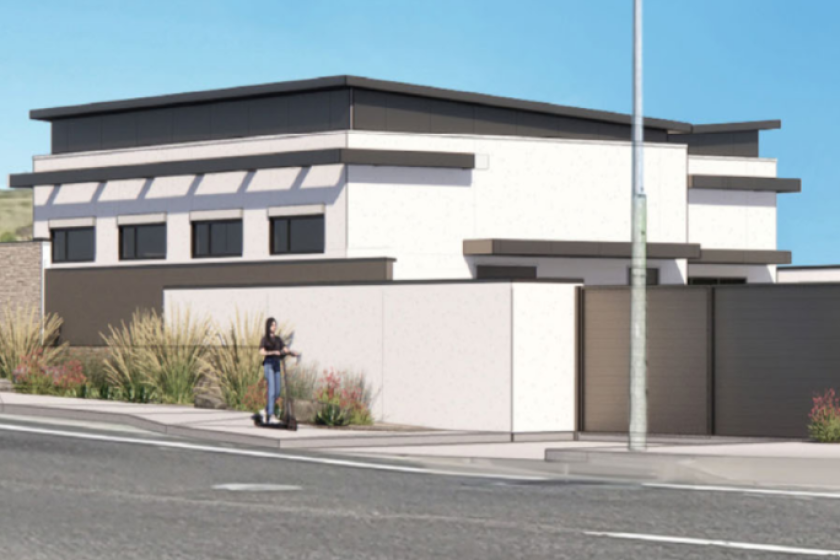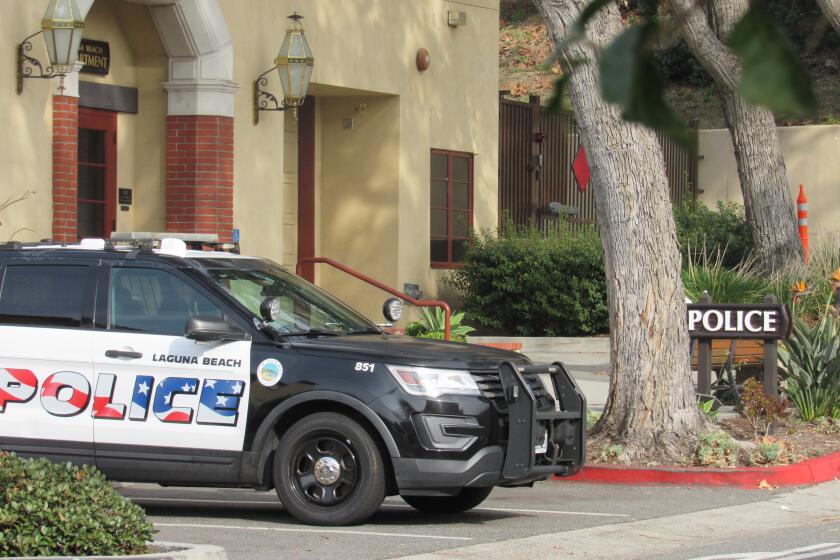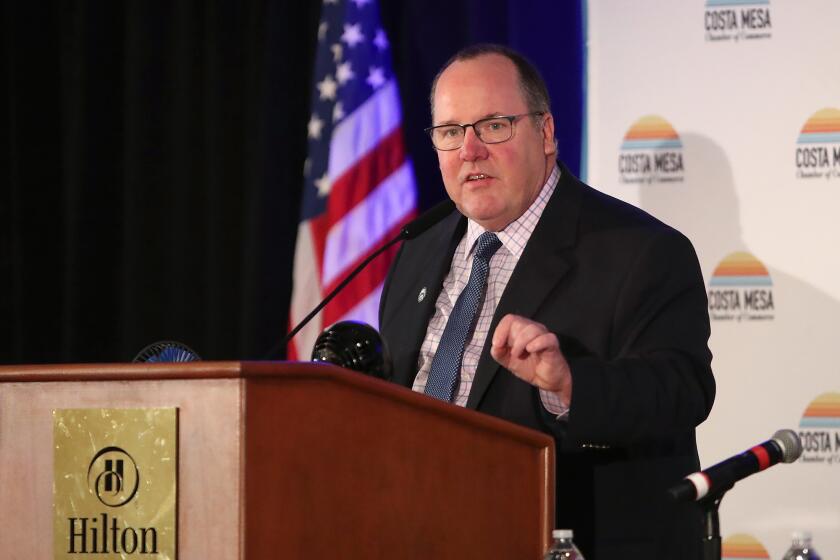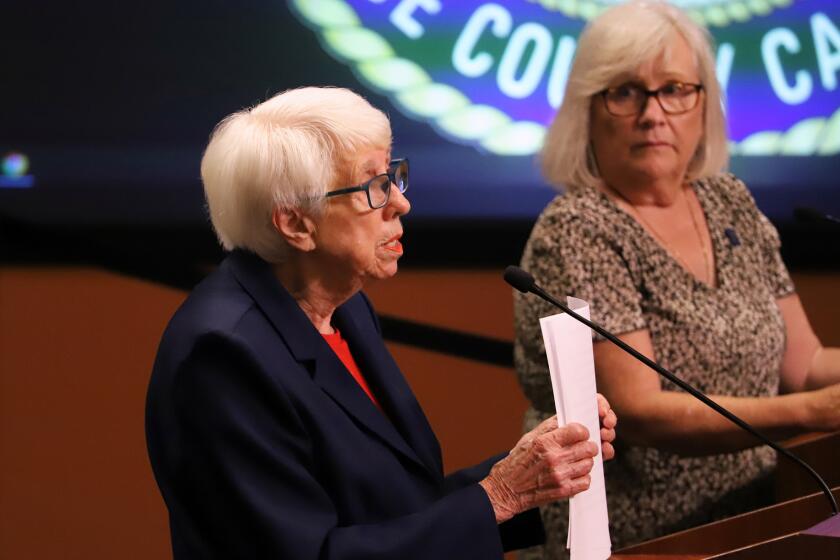Group rallies against cell towers
Toddlers pushed around inflatable beach balls bigger than themselves and parents mingled in vibrant yellow shirts as music blasted in the park, but the gathering was anything but a party.
Community members gathered at Harbour View Park, next to Harbour View Elementary School, on Wednesday afternoon to rally against two cell towers being built in the park and at Bolsa View Park, two locations where children play.
The rally was organized by the Committee for No on Measure Q, a grass-roots organization made up of parents from Harbour View Elementary, to send a message to voters, but also to the City Council to keep fighting the towers.
“If anything is worth fighting for, it’s the people of Huntington Beach, especially the children,” said Lori Burrett, a spokeswoman for the committee.
Measure Q asks residents if they want mobile telephone antennas at Harbour View Park and Bolsa View Park.
The vote is only an advisory tool for the city, and potentially for the judge, in a lawsuit against the city over the cell towers, to gauge how residents feel, City Atty. Jennifer McGrath has said.
Opponents of the cell towers are concerned about their proximity to children at Harbour View Elementary and Bolsa View Park’s playground and have been fighting the tower since word got around that a 55-foot-high cell tower at Harbour View Park and a nearly 52-foot-high tower at Bolsa View were going in more than a year ago.
“There’s other places you can put it,” Janie Yee, a resident and mother of four, said at the rally. “This is not the spot.”
Parents are concerned about the towers’ effect on property values, the safety risks the towers would create for children climbing up them or something falling off them, but also the health risks, Burrett said.
Even though the federal Telecommunications Act bars health concerns from being a factor in denial of a cell tower, Burrett said it is a real concern for parents until it is proven safe.
“We’d rather be safe than sorry,” Yee said, echoing Burrett’s sentiments.
Burrett said they are asking the citizens to vote down Measure Q, but also for the City Council to stop this from happening to anyone else.
She said she wouldn’t be happy with the towers being moved to someone else’s backyard, but wants the city to revise its zoning to prohibit another cell tower from being built so close to a park, school or residential area.
“We don’t want this to happen to any other resident,” she said.
T-Mobile officials have declined to comment on the ballot measure because of the pending litigation surrounding the two cell towers.
The City Council revoked T-Mobile’s wireless permits Aug. 30 because a significant coverage gap wasn’t proven and there are viable alternatives.
The permits were originally granted by administrative approval in 2007, but the company voluntarily halted construction in April 2009 after neighbors spoke out against them.
It later came out that the projects, originally slated to cost $60,000 and $80,000 to build, were actually going to cost about $200,000 each. The cost increase put the project under the purview of Measure C, which dictates that all projects in parks or on beaches that cost more than $100,000 must go to a vote of the people.
T-Mobile sued the city in May 2009, arguing that the federal Telecommunications Act trumped a vote of the people. The judge upheld that the city couldn’t use Measure C as a reason for denying the cell towers, but instructed the city to reevaluate the permit in light of the fact that T-Mobile didn’t “provide the required information accurately,” according to the judgment.
Although the judge ruled the city couldn’t use a vote of the people as a reason for denial, the city wanted to make sure it had all its bases covered, and the ballot measure could be a factor in the court’s determination when the lawsuit goes to trial, McGrath said.
The lawsuit is expected to go to trial after the elections in November.
All the latest on Orange County from Orange County.
Get our free TimesOC newsletter.
You may occasionally receive promotional content from the Daily Pilot.



